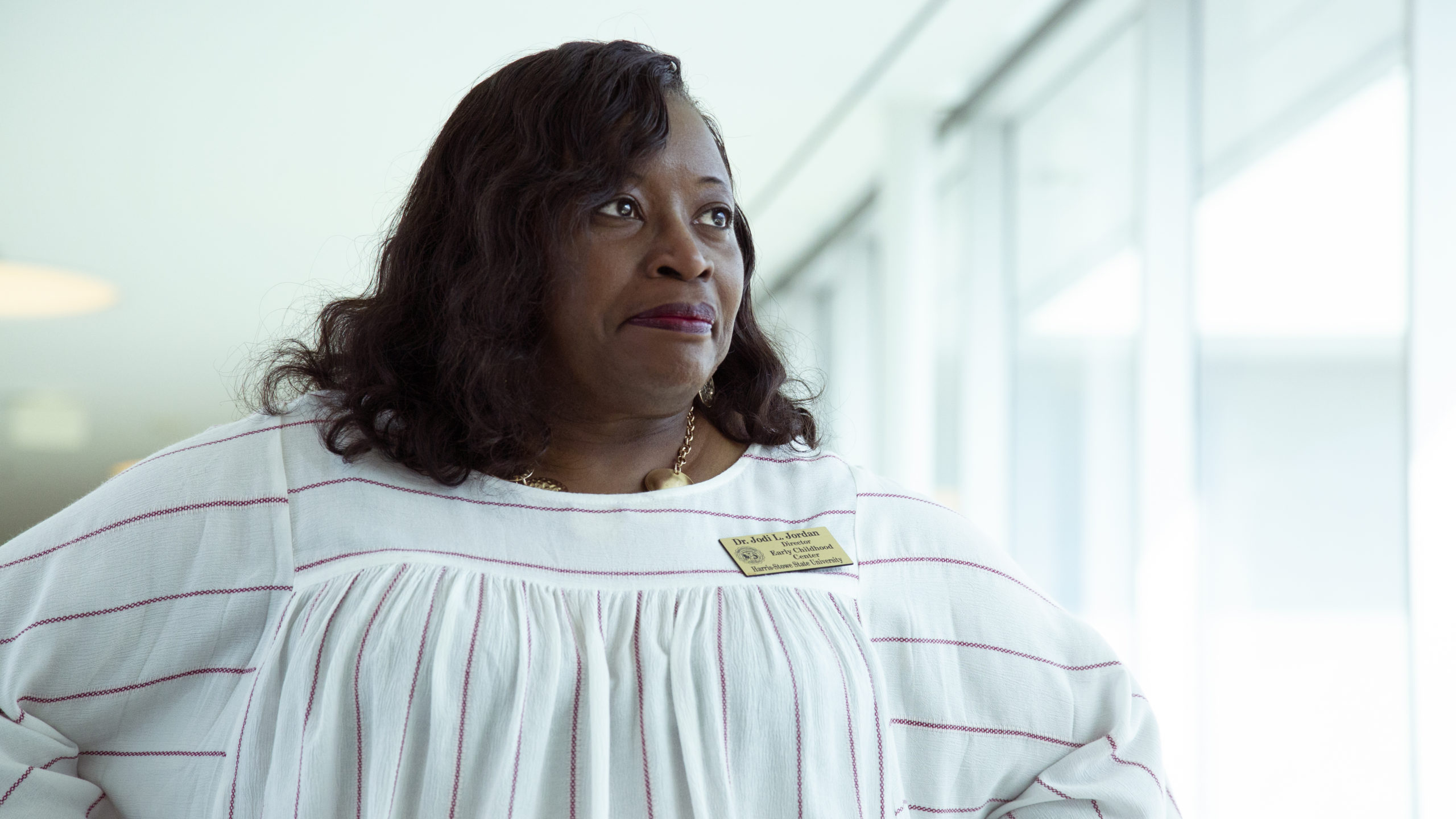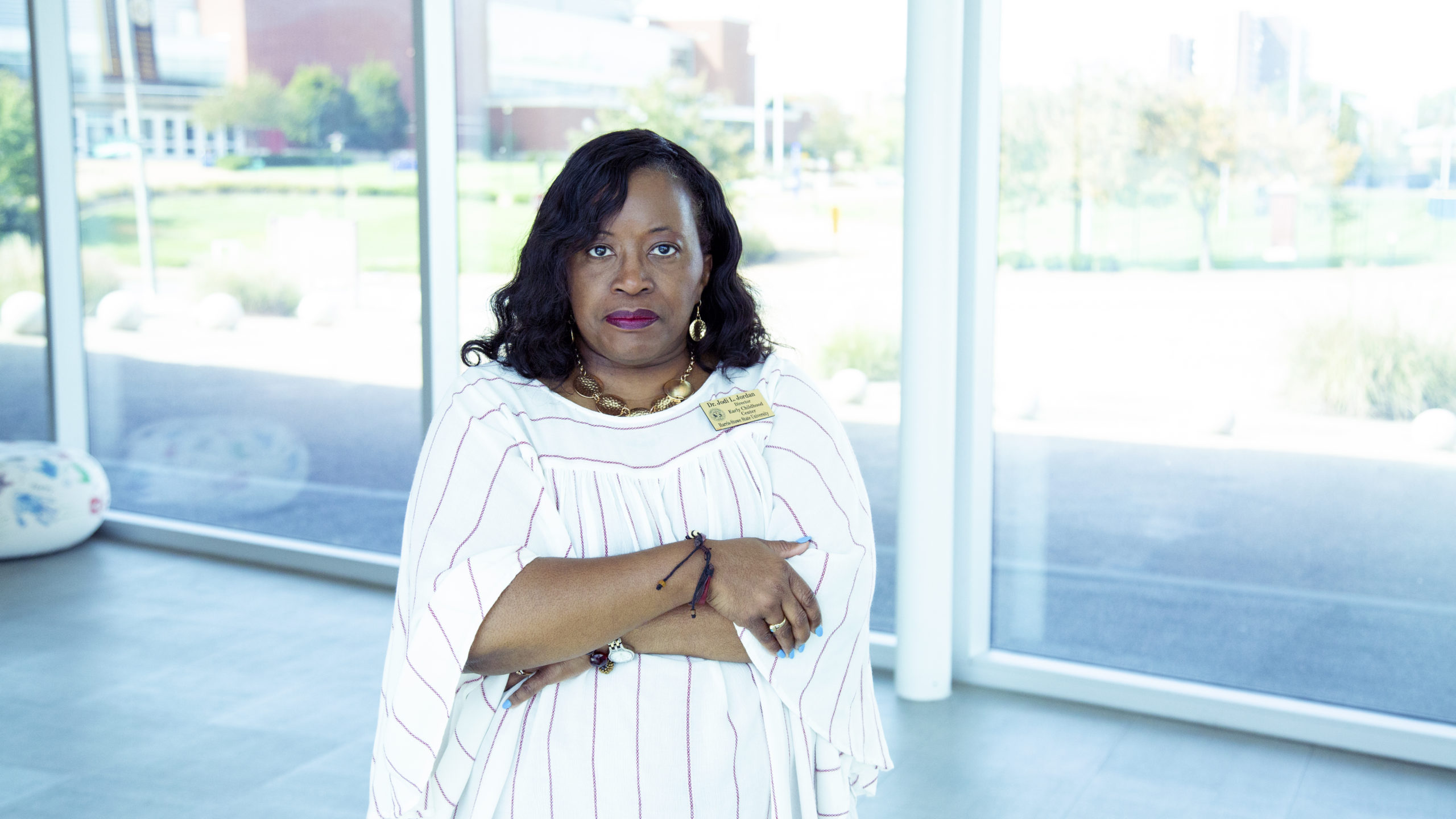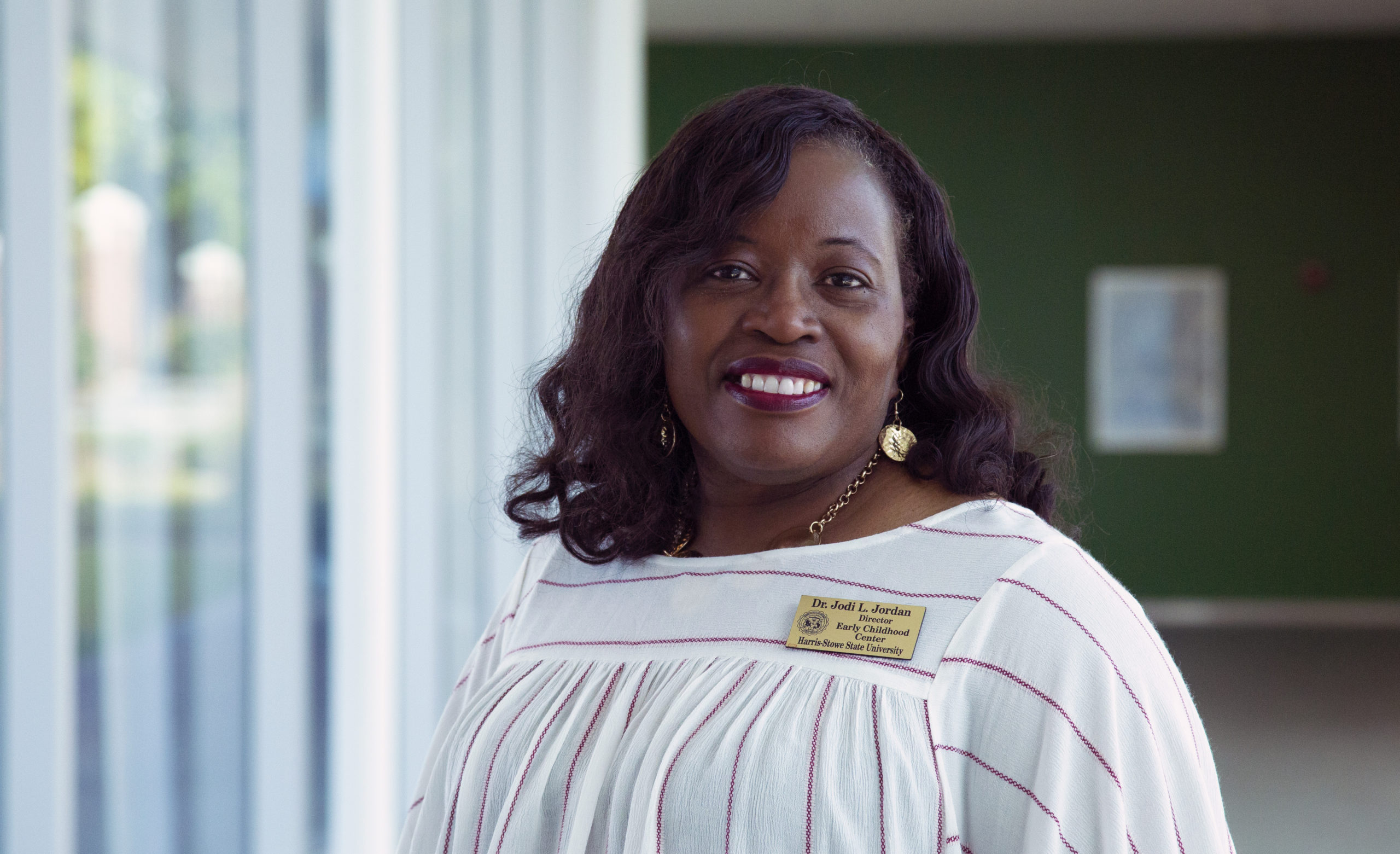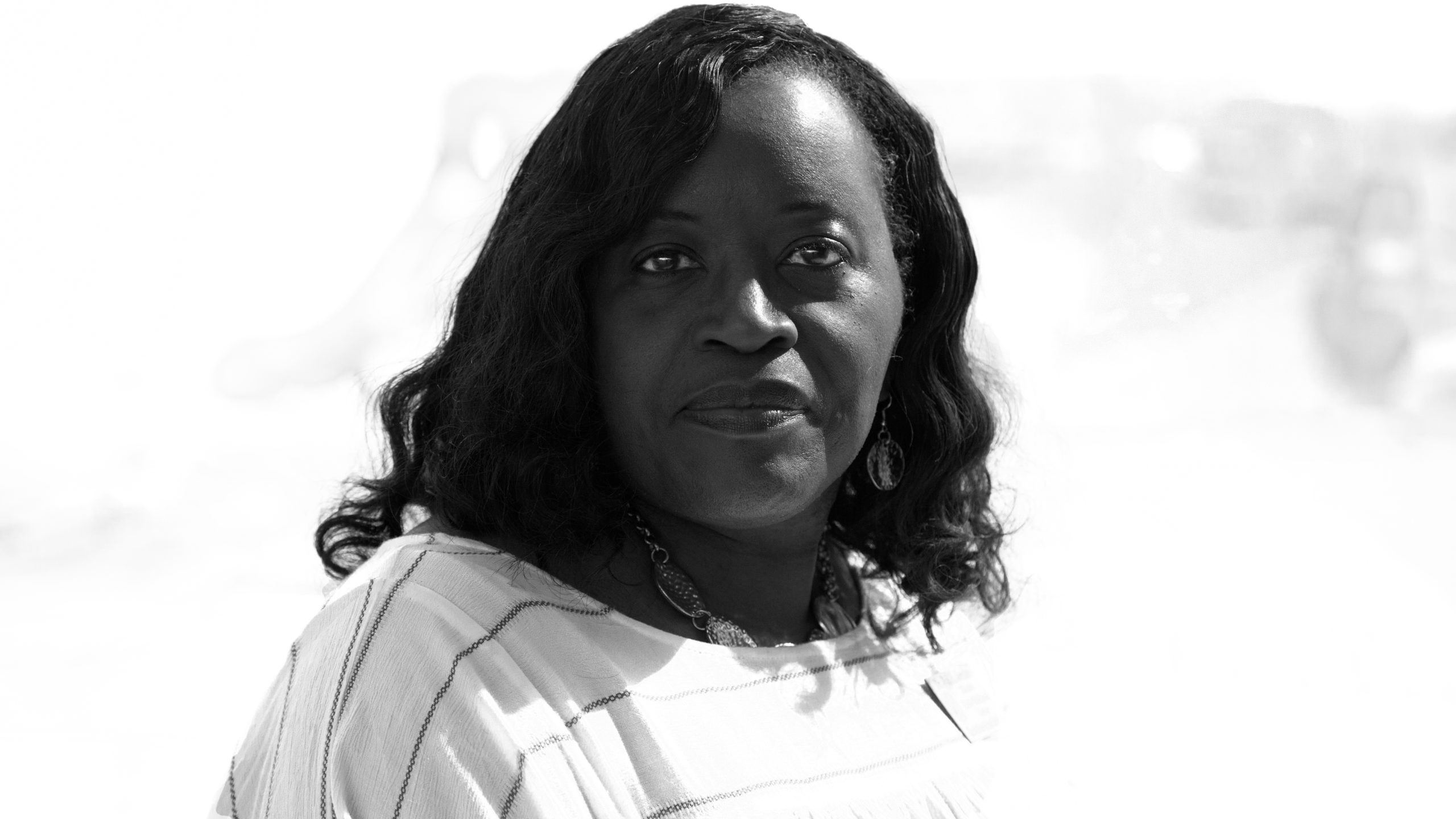My World Has Changed Its Face
OCTOBER 21, 2020
My World Has Changed Its Face
By Dr. Jodi with Joey Saunders

Dr. Jodi Jordan is a Power Builder in St. Louis, MO. Photos were taken at her early childhood center by Joey Saunders.
Sister Carmen probably loved many things, but two stick out in my memory: The Wiz and affirming her students’ Blackness. She was our principal, a Black nun. I remember, as a girl, she had us flow down our school hallways, a stream of red and green and black, celebrating not just Kwanzaa, but the beauty of knowing where you came from and where you could go.
I come from East St. Louis, now I have a doctorate in Educational Leadership and I am the director of an early childhood development center for 0-5 year olds in St. Louis City. As I write this, my gorgeously curious 5-year-old granddaughter is nearby. She twirls and sings, glances over at me thoughtfully, gauging whether her volume is bothering me, we exchange smiles as she selects a book from the shelf and twirls out of the room. I’m fighting for Proposition R because of little Black children like her who deserve to know where they could go in life and know, with certainty, that their potential is splendorous and unlimited. It breaks my heart to know how far our city is from that reality today.
I hear “privileged” a lot to describe white people, but you might say I was relatively privileged growing up. The East St. Louis my sisters and I remember was back in the days of unlocked front doors and playing outside till the sun dropped down and the streetlights came up. It must’ve been around the early 1980s when I noticed a shift from feeling surrounded by love and culture to what felt like this quick slide toward the East St. Louis people think of today. I come from a military family, they worked hard and sent me to a parochial school, St. Joseph-renamed Sr. Thea Bowman, and Assumption High School, which is now a prison (talk about the school-to-prison pipeline). We lived near the Roosevelt Homes, what you might call “the projects” and had lots of friends over there. I remember driving, about to cross the Mississippi, and noticing the distinct smell of the meatpacking plants had disappeared. Industries were disappearing left and right. By the time I was in high school, some of my friends were having babies when I felt like we were still babies ourselves. Others died young, usually due to guns and gang violence. I left East St. Louis to attend college at Washington University. The self-affirmation Sister Carmen helped me discover stayed with me even as the memories of the East St. Louis I’d loved seemed to crumble in the rearview mirror.

I started at Wash U in 1986. I majored in African American Studies and Elementary Education, hoping to have the same impact on other Black children that Sister Carmen had on me. I was one of two Black people in Wash U’s school of education. I don’t remember any overt racism while I was in school but I remember my advisor, an older White lady, was much more stern and impatient with the other Black student and me. It always seemed like we had to work twice as hard to get half the recognition as our White counterparts. I remember, just before I graduated, feeling so validated when she finally said to me, “You know, Jodi, when you first came here I looked at you and thought, ‘She’s just this little Black girl with a backpack,’ and now you almost seem professional.” Looking back, I realize ‘professional,’ in her mind, meant acting White. And all the academic learning in my very ‘professional’ college program came with the cost of diminishing much of the self-affirmation Sister Carmen had championed.
After graduating, I taught at a public grade school in University City where the principal told me I was too focused on my Black students. Eventually, I started a school to try to recreate the magic of St. Joseph in North St. Louis with the goal of making my private school experience accessible to all kids. Sadly, I couldn’t make it work due to financial difficulties. I tried taking the school public with St. Louis Public Schools (SLPS), but that didn’t quite work out either. They ended up offering me an administrative position and I eventually closed my school.
Years later, I was invited to be the director of the early childhood development center I work at today. I was hesitant to accept the position, not fully understanding the value of birth-to-five programs. I am elated that I ended up accepting, because now that I’ve witnessed how transformative a high-quality early childhood experience, especially for the babies coming to you from the most shattered circumstances— trauma, poverty, violence (sadly, these are usually Black kids)– I am a total convert, a lifelong advocate. But, while I find what I do rewarding, most of the kids at my center aren’t Black and aren’t from those circumstances. I am the director of this center, but I am beholden to the university that houses it and, understandably, expects it to generate revenue. So I write grant after grant to try to make my center more accessible to Black and Brown families impacted by poverty but I had come to the realization that I was limited in what I could do. I figured I’d do what I could to support my staff, mostly Black women, who work so hard and deserve to be paid so much in a field where typical compensation is low. And, I reasoned, I would learn to be content developing them and the kids they serve. Then, one day almost two years ago, a young man came to the center asking if he and a young woman he called a “Power Builder” could talk to me and my teachers about building a better tomorrow.

He was from an organization called WEPOWER and invited us to reimagine the early childhood system through something called the Tomorrow Builders Fellowship. It sounded exciting but it didn’t sound like anything I’d heard of before and would have required engaging in something that I’d learned was risky: hope.
I told my teachers and staff that if they wanted to apply, I would support them. At least two applied and Treasia Foster was accepted. I watched in awe (and maybe even with a bit of jealousy) as she and the other Tomorrow Builders built on the challenges and dreams of so many community members, working with many of them to turn months of research into a landmark report and action plan, The Playbook. The plan outlines a path to create the early childhood system of my racial justice dreams. But that wasn’t the end of the fellowship. Next, Treasia said, it was time to make those dreams a reality, to take action, and that, that meant I would need to join the fight. So I stopped making excuses and applied to be a Power Builder.
At first, if I’m being honest, a lot of it confused me. All this talk of power— who has it, who doesn’t, where it comes from, how to get it, how it feels to have it or not have it— I wasn’t sure where it was all headed. Then, we broke off into smaller cohorts and those of us who wanted to focus on early childhood came together to organize around an issue we all agreed on. We chose Proposition R. And that’s around the time it clicked for me and I understood how everything we were learning could be applied to changing the entire early childhood system one issue at a time. Suddenly, I found it thrilling and felt so in community with the other women, we happen to all be Black women, unified around this common love of children and the people who have dedicated their lives to them. Speaking at the launch of the Yes on R campaign, I felt like I had discovered a staircase that had previously been invisible to me, a staircase leading to a more limitless future for our children, yes, but also for myself.
I can feel the tears falling as I write this; I am not usually a crier, but I’m just having this bittersweet realization. You see, I’ve always felt pretty blessed in life, like I have so much I should be grateful for. But, I've realized just now, at 51 years old, that this is the first time I’ve felt truly powerful and recognized as a leader in early childhood education personally and professionally.
Every child deserves an affirming, culturally responsive early childhood experience. Right now, many of the programs poised to be most culturally responsive and serve 0-5 year olds from our most divested communities are struggling to meet or exceed licensing requirements. Prop R will be a gamechanger for these providers, but it’s just the beginning.

So, yes, I’m asking you to finish your ballot and vote “yes” on Proposition R this November 3rd. But even more than that, I’m asking you to join me in taking the risk of having hope. Join our movement. Pick up a phone and tell someone your story and why you’re supporting Prop R. And then do it again and again until you’ve told hundreds of people. Come out and knock on doors with us. Drown out the noise on social media with a hopeful call to invest more in life-changing programs for our youngest and most vulnerable St. Louisans. Then, after we win this, join us again and again until you’ve ascended the staircase with us. At the top is a world where all children are assured boundless possibilities. Join me in feeling more purposeful and powerful than I have in my entire life.
